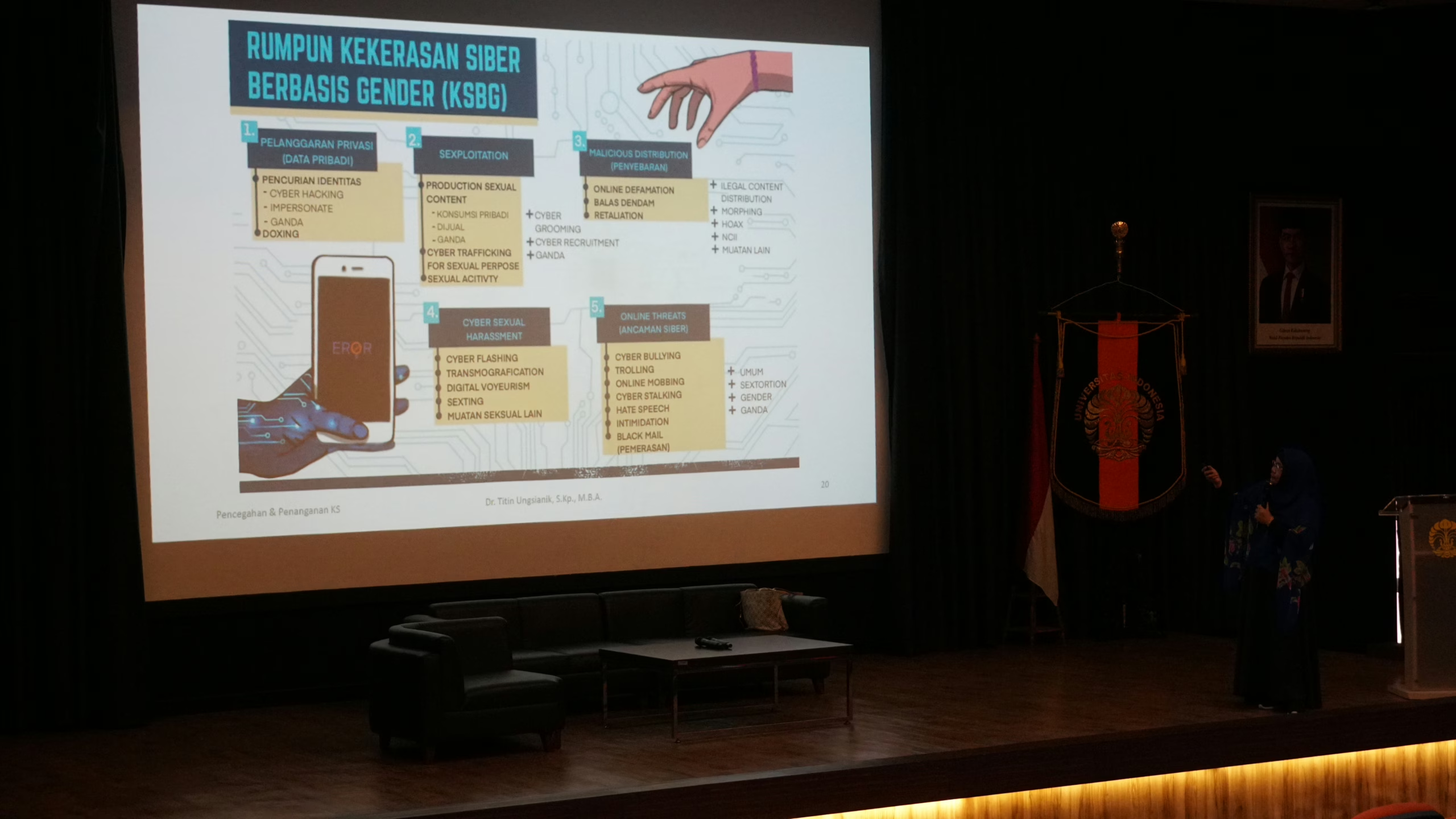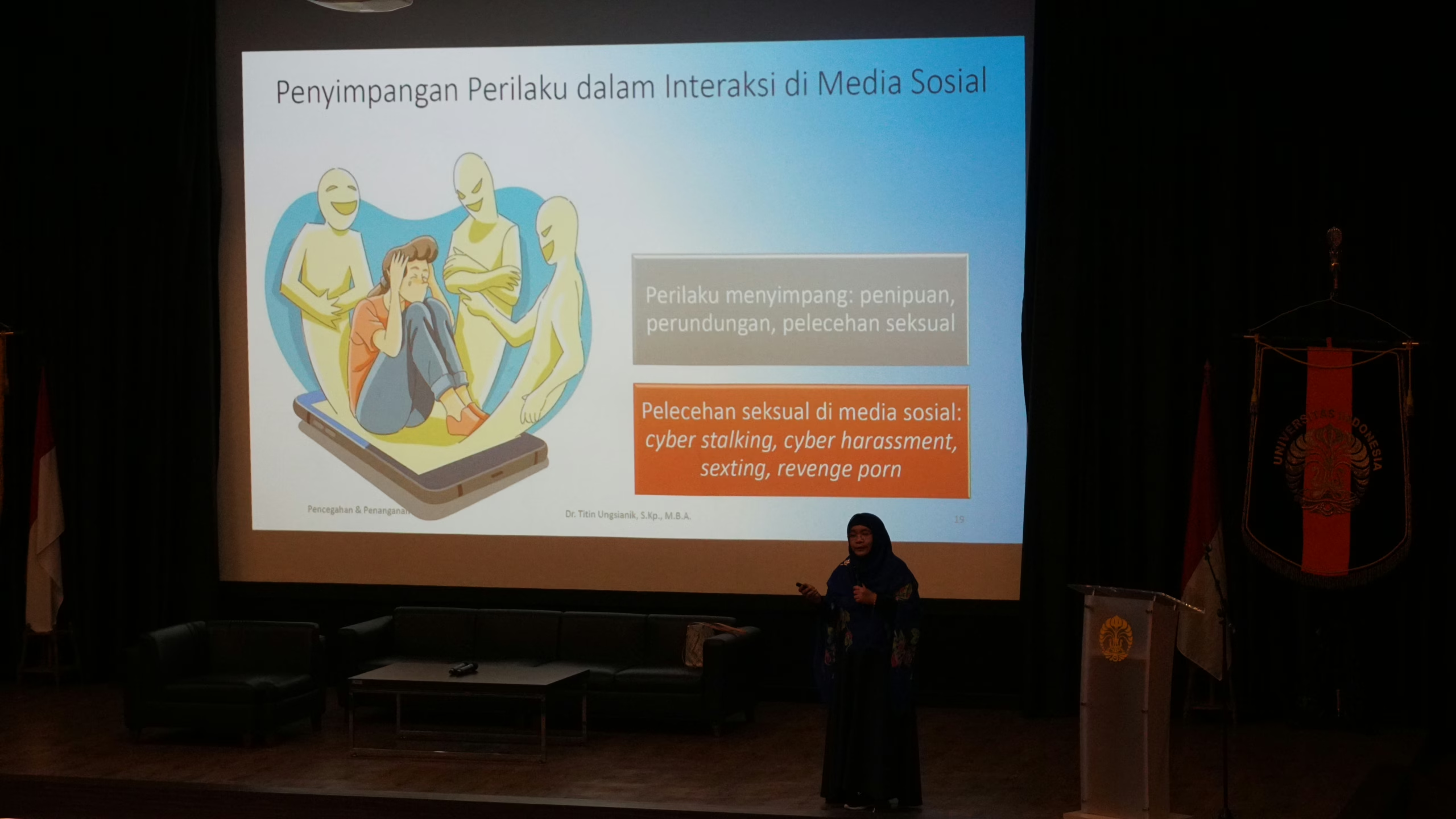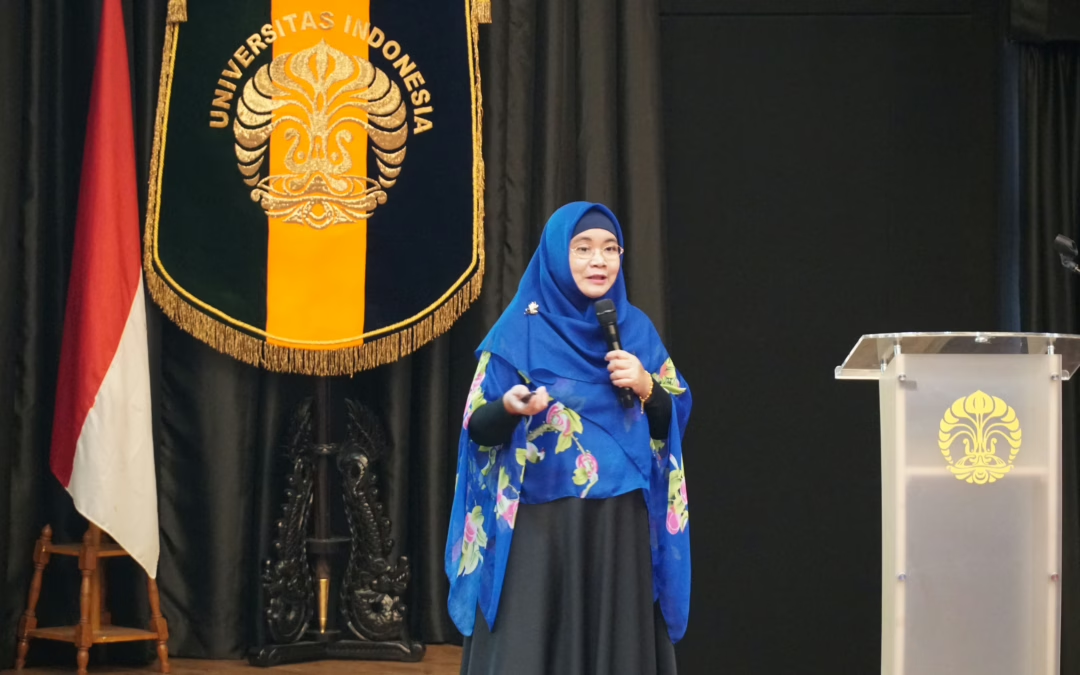Depok-Sexual consent is not merely verbal agreement or silence in a relationship, but rather a form of communication that must be explicit, equal, and free from coercion. In the context of often unequal power relations, whether due to age, position, or social status, consent is often not freely given. This was one of the main topics of discussion in the educational session entitled “Preventing Sexual Violence and Understanding Sexual Consent & Power Relations” presented by Dr. Titin Ungsianik, S.Kp., M.B.A., Chair of the Task Force for the Prevention and Handling of Sexual Violence (PPKS) at the Universitas Indonesia.
According to Titin, understanding sexual violence requires more than simply recognizing its physical forms. Violence can manifest in verbal abuse, emotional manipulation, and even covert pressure rooted in unequal power relations. In cases such as forced sexual intercourse by a romantic partner, the non-consensual distribution of intimate content, or pregnancy resulting in forced abortion, victims are often unaware that they are in a relationship that violates their bodily rights and dignity.
“Power relations make the weaker party feel like they have no right to refuse. This is where education about sexual consent is crucial: it must be active, revocable at any time, and void if given unconsciously, under duress, or under manipulation,” Titin emphasized.
 (Photo: Titin explains about Gender-Based Cyber Violence (GVBS))
(Photo: Titin explains about Gender-Based Cyber Violence (GVBS))
Sexual violence is also increasingly prevalent in the form of gender-based cyberviolence (GVBS). Phenomena such as sextortion, cyber harassment, catfishing, and revenge porn target the vulnerabilities of women and other vulnerable groups through social media and digital technology. This form of violence often results in profound psychological suffering and is difficult to investigate legally due to the rapid disappearance of evidence and the difficulty of tracking perpetrators.
“Many victims choose to remain silent for fear of being shamed, disbelieved, or blamed by their community. Yet the impacts can be very serious, ranging from mental health problems, loss of safety, to suicidal thoughts,” Titin explained.
This education also emphasizes the importance of creating a safe environment on campus by strengthening anti-sexual violence policies, providing responsive reporting tools, and providing ongoing education on gender equality and reproductive health.
 (Photo: Titin invites students to be careful and wise in using social media and avoid deviant behavior when interacting on social media)
(Photo: Titin invites students to be careful and wise in using social media and avoid deviant behavior when interacting on social media)
This activity was organized by the Vocational Education Program of the Universitas Indonesia on July 17, 2025 as part of a series of Training of Trainers (ToT) aimed at students. Through this activity, UI Vocational hopes that students can become agents of change who are sensitive to the issue of sexual violence and are able to suggest the importance of healthy and equal relationships in their environment. In addition, preventing sexual violence is also an important part of achieving the Sustainable Development Goals (SDGs) point 5 on gender equality, and point 16 on peace, justice, and strong institutions. Education on sexual consent and power relations is a strategic step in creating a safe, inclusive, and violence-free space in the higher education environment.


